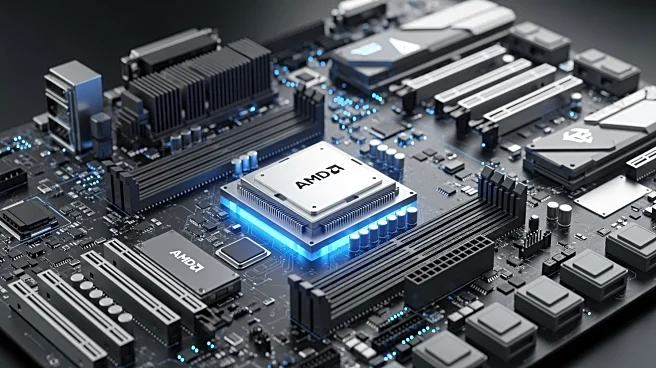What's Happening?
A YouTuber named Fully Buffered has successfully run Battlefield 6 on an AMD FX-9590 CPU, a processor first released in 2013. This achievement challenges the game's stated minimum system requirements,
which include Trusted Platform Module (TPM) 2.0 and UEFI Secure Boot for EA's Javelin anti-cheat system. Despite the processor's age, the game managed to run at a 'not terrible' quality, peaking at mid-40 FPS at lower resolutions. The RX 5700 GPU used in the test showed around 30% utilization, indicating a bottleneck due to the older CPU. The video demonstration reveals that the game's anti-cheat requirements are more flexible than previously thought, allowing the game to run without TPM enabled.
Why It's Important?
This development is significant for gamers who may not have access to the latest hardware but still wish to enjoy modern games. It highlights the potential for older systems to run new software, challenging the notion that constant hardware upgrades are necessary. This could influence game developers to reconsider system requirements and optimize their games for a broader range of hardware. Additionally, it raises questions about the effectiveness and necessity of stringent anti-cheat measures, potentially impacting how future games are developed and marketed.
What's Next?
The revelation may prompt discussions within the gaming community and among developers about the balance between security and accessibility. EA and other game developers might need to address the flexibility of their anti-cheat systems and consider adjustments to system requirements. Gamers with older hardware might explore similar possibilities, potentially leading to a trend of testing games on outdated systems. This could also influence future updates or patches to ensure compatibility and security without compromising accessibility.
Beyond the Headlines
The ability to run Battlefield 6 on older hardware could have broader implications for digital inclusivity, allowing more people to participate in gaming without the financial burden of upgrading systems. It also touches on the ethical considerations of anti-cheat systems, questioning their impact on user privacy and system performance. As technology evolves, the gaming industry may need to balance innovation with accessibility, ensuring that advancements do not exclude those with limited resources.









